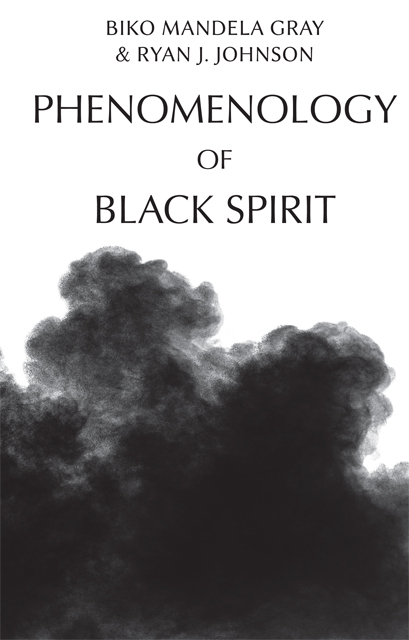Introduction. Black and White, Gray in Gray
Published online by Cambridge University Press: 10 August 2023
Summary
Despite what the title may suggest, this is not a book about Hegel. Or, put slightly differently, this is not a book about Hegel. It is about a text he wrote, his 1807 Phenomenology of Spirit. To the extent that the Phenomenology gives us insight into what he, as well as many other white men, were thinking in early nineteenthcentury Germany, Hegel shows up in this text as merely one of many characters. He might be a main character, but he is not the only one. This book, then, is a conversation – between the Phenomenology and Black thinkers, between a dominant and canonical philosophical text and a chorus of thinkers, writers, and activists who either illuminate or trouble the Phenomenology’s assertions and conclusions. Perhaps it is more a conversion than a conversation.
For some, this kind of approach will feel lopsided, since it is very specific. At first glance, this text will reveal that it does not engage with the Phenomenology in its totality, but only its fourth chapter: ‘Self-Consciousness’. We begin at the master-slave dialectic, and end with the third movement of what Hegel calls the ‘unhappy consciousness’. In the Gesammelte Werke edition, we only cover about forty pages. There are times where we acknowledge the deep resonances between the Phenomenology’s phases and some of the thinkers we chronicle in this volume. An equally brief glance at this text might lend itself to the conclusion that we are reading Black thinkers through Hegel, but while this is partly true, it is not the whole story. Cursory glances, after all, never suffice; what appears at first can be deceptive; immediacy is pretence. So, from the outset, we ask that you, dear reader, take your time. The prose will not be difficult, but even simple prose can be deceptively complicated. And so we repeat, from the outset, please take your time.
We do not ask this of you lightly. We ask you to take your time because writing this book took some time – a lot more than we anticipated. The pandemic, antiblackness, and global neoliberalism got in the way. The book was drafted during the period when Breonna Taylor, George Floyd, Tony McDade, and Ahmaud Arbery were killed.
- Type
- Chapter
- Information
- Phenomenology of Black Spirit , pp. 1 - 24Publisher: Edinburgh University PressPrint publication year: 2022



